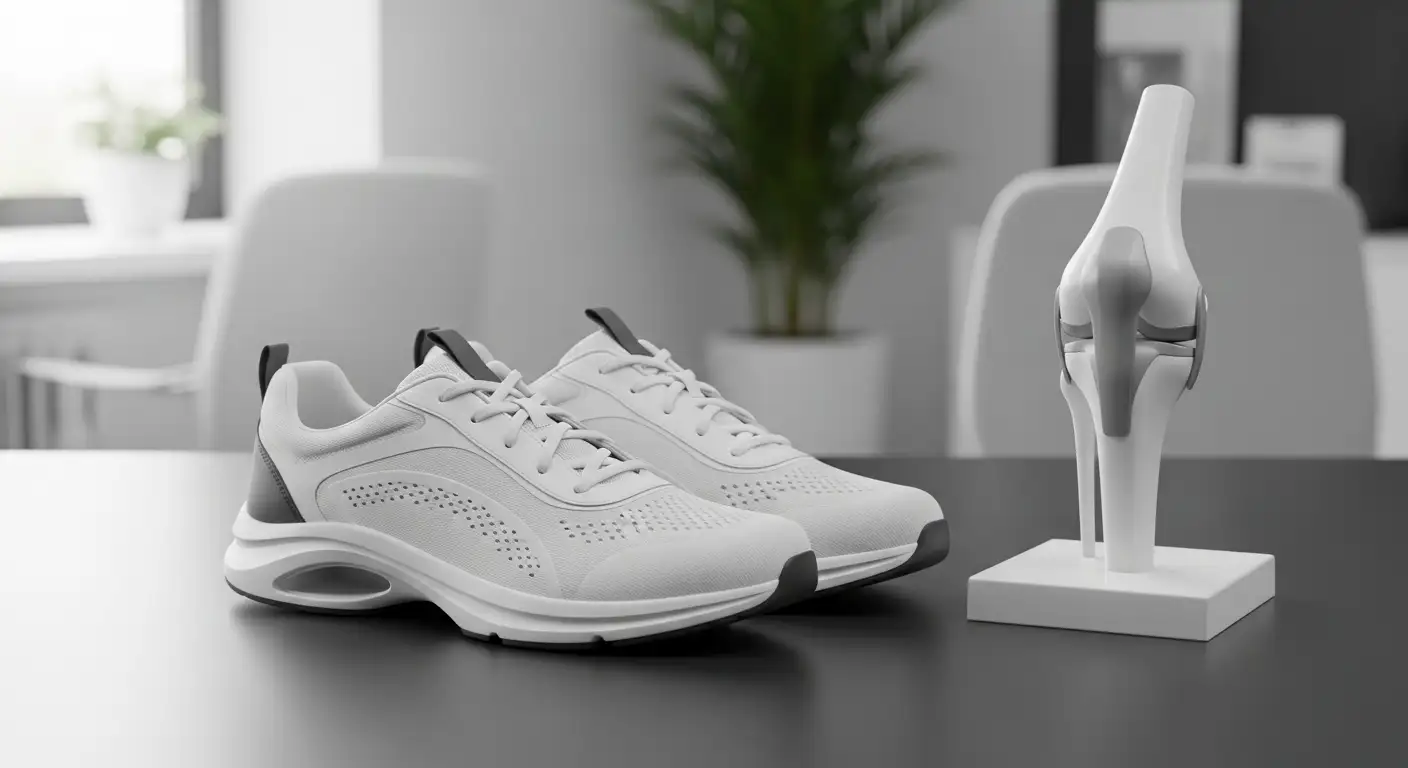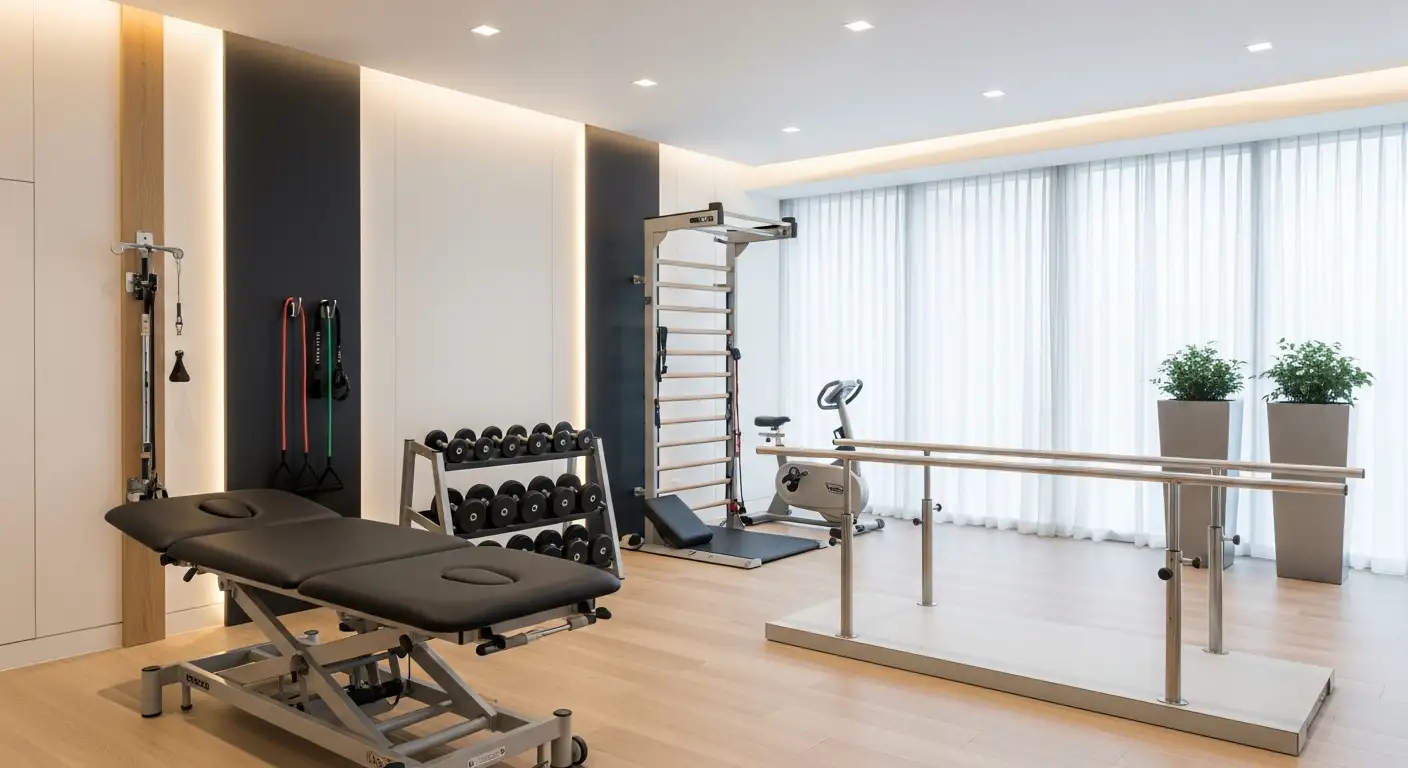Understanding Knee Pain at Night
When it comes to nighttime knee pain, understanding the causes and impacts can help guide effective strategies for relief.
Common Causes of Knee Pain at Night
Knee pain at night can stem from a number of underlying conditions. Osteoarthritis is the most common cause among individuals over the age of 50, with up to 70% of those suffering from chronic knee pain showing evidence of the condition on radiography.

In addition, joint pain can be more severe at night due to lower levels of cortisol, an anti-inflammatory hormone naturally produced by the body. Lying down can also result in inflammatory chemicals pooling in the fluid that cushions the joints, exacerbating the discomfort.
Impact of Nighttime Knee Pain on Sleep
Nighttime knee pain can significantly impact sleep quality. A study published in the Journal of Arthritis Care & Research found that poor sleep quality is commonly reported among individuals with knee osteoarthritis, affecting pain levels, function, quality of life, and disability levels.
Poor sleep due to knee pain can lead to a vicious cycle. The lack of restful sleep can exacerbate the knee pain, which in turn further interferes with sleep. It's important to break this cycle by seeking effective relief for knee pain at night.
Understanding the causes and impact of knee pain at night can help guide effective strategies for relief, including lifestyle changes, home remedies, exercise techniques, and the use of specialized products. In some cases, professional help may be necessary.
Lifestyle Changes for Knee Pain Relief
Adopting certain lifestyle changes can play a crucial role in providing relief for knee pain at night. Two such modifications - weight management and regular physical activity - have proven to be especially impactful.
Importance of Weight Management
Managing your weight is crucial for alleviating knee pain at night. Extra weight increases pressure on the knee joint, exacerbating pain. When a person is overweight, their knees must bear the brunt of the extra weight. This additional force can cause the cartilage in the knees to wear down more quickly than usual, leading to pain and discomfort. Therefore, maintaining a healthy weight can reduce the strain on your knees and alleviate the pain you experience at night [3].
To manage your weight effectively, consider adopting a balanced diet full of fruits, vegetables, lean proteins, and whole grains. Avoid foods high in sugar, sodium, and unhealthy fats. If necessary, seek the advice of a healthcare provider or a registered dietitian to create a personalized weight management plan.
Role of Regular Physical Activity
Engaging in regular physical activity and exercises that strengthen the muscles supporting the knees can help alleviate nighttime knee pain and improve joint function. Low-impact exercises such as swimming, biking, and water aerobics can be beneficial for individuals experiencing knee pain at night. These exercises can improve cardiovascular health, enhance muscle strength, and reduce pain in the knees without causing additional strain.
Performing knee exercises can help relieve knee pain at night by improving strength and flexibility in the surrounding muscles. Strengthening the muscles around the knees can provide better support and alleviate discomfort during the night, aiding in better sleep quality.
Moreover, exercising and stretching before bed can alleviate joint pain, burn energy, and improve sleep quality for individuals experiencing joint pain [2].
In conclusion, weight management and regular physical activity are vital components in managing knee pain at night. By incorporating these lifestyle changes, individuals suffering from knee pain can experience significant improvements in their quality of life and sleep.
Home Remedies for Nighttime Knee Pain
Home remedies can often provide relief for knee pain at night. These measures are simple, requiring minimal equipment and can be performed in the comfort of your own home. They include elevation techniques, application of ice and heat, and the use of over-the-counter (OTC) pain medications.

Elevation Techniques
Elevating the affected leg can be an effective way to alleviate knee pain at night. It helps reduce the strain on the knee joint and prevent fluid accumulation. This can be done by placing a pillow or cushion under the knee [3]. Changing sleeping position and using a pillow between or underneath the knees can also help by reducing joint pressure and promoting better alignment.
Application of Ice and Heat
Applying ice to the knee before bed can also provide relief for knee pain at night. The cold helps to reduce inflammation and numb the area, providing temporary relief [5]. After icing, applying heat can help to relax the muscles around the knee. These alternating hot and cold treatments can improve circulation and decrease discomfort.
OTC Pain Medications
Over-the-counter pain medications can be an effective method of relief for knee pain at night. Nonsteroidal anti-inflammatory drugs (NSAIDs) like ibuprofen can help to reduce inflammation and alleviate pain in the knees, offering relief during the night for individuals with knee discomfort.
However, if home remedies do not provide relief, or if nighttime knee pain persists, it's recommended to consult with a healthcare provider for proper diagnosis and treatment. This can help identify the underlying cause of the pain and determine the most effective interventions to manage and alleviate discomfort in the knees [5].
In some cases, prescription medications for knee pain may be necessary, but it's important to consult with a doctor before starting any new medication regimen to relieve nighttime knee pain.
Learning to manage and alleviate knee pain at night can greatly improve sleep quality and overall quality of life. It's always important to listen to your body and seek professional help if the pain persists or worsens.
Exercise Techniques for Knee Pain Relief
Exercise plays a crucial role in providing relief for knee pain at night. A combination of stretching and strengthening exercises can improve knee flexibility, reduce stiffness, and build muscle strength around the knee joint, which can alleviate discomfort and enhance knee health.
Benefits of Pre-Sleep Stretching
Stretching before bed can significantly impact nighttime knee pain. It improves flexibility, reduces stiffness, and helps maintain knee function, thereby providing relief for knee pain at night [6]. A study from 2016 showed that a 12-week yoga program significantly improved symptoms of knee osteoarthritis, including pain reduction and improved physical function in participants, indicating yoga's effectiveness in dealing with knee pain.
Here are some recommended stretches:
- Quadriceps Stretches
- Hamstring Stretches
- Calf Stretches
- Iliotibial Band Stretches
These stretches, when performed consistently, can improve flexibility, reduce stiffness, and alleviate discomfort in the knees [6].
Foam rolling the quadriceps, hamstrings, and calves before bed may also offer relief for knee pain at night. By loosening tight muscles and improving blood flow to the knee joint, foam rolling can help reduce tension and discomfort.
Strengthening Exercises for Knee Support
Strengthening exercises for the lower body can be particularly beneficial for those seeking nighttime knee pain relief. Exercises such as leg lifts, seated knee extension, and side leg raises can help build muscle strength around the knee joint, providing support, stability, and relief for knee pain, particularly when performed regularly [6].
Remember, it's essential to maintain proper form during these exercises to avoid further strain or injury. If any exercise causes increased pain or discomfort, it's advised to stop and consult with a healthcare provider.
Products to Alleviate Knee Pain at Night
When lifestyle changes and home remedies are not enough, there are certain products designed to provide relief for knee pain at night. These products, which include knee pillows and supports, as well as topical pain relief sprays, can help alleviate discomfort and promote better sleep.
Knee Pillows and Supports
Knee pillows and supports can provide relief for knee pain at night by promoting proper alignment and reducing strain on the knee joint. Using a knee pillow or cushion can help alleviate knee pain by providing support and reducing pressure on the knee joint.
Some popular knee pillows and supports include:
- The ComfiLife Orthopedic Knee Pillow, designed to align the spine and provide relief for side sleepers experiencing knee pain.
- The Copper Compression Recovery Knee Sleeve, which can help alleviate knee pain and discomfort at night by providing support and promoting blood flow to the area.
In addition to these, ice packs such as the Thrive Large Ice Pack can help reduce knee pain and inflammation, offering relief during the night for those suffering from knee discomfort.
Topical Pain Relief Sprays
Topical pain relief sprays are another option to consider for nighttime knee pain relief. These sprays work by numbing the area and reducing inflammation, thus providing quick relief for knee pain.
One such product is the Blue-Emu Continuous Pain Relief Spray. Known for its ability to provide quick relief for knee pain, including during nighttime discomfort, due to its cooling effect on the skin [7].
These products can be used in combination with other strategies such as exercise and lifestyle changes to manage and alleviate knee pain at night. However, if knee pain persists or worsens, it is important to seek professional medical advice.
Professional Help for Persistent Knee Pain
While home remedies and lifestyle changes can offer relief for knee pain at night, they may not always be enough. In cases of persistent or severe knee pain, it's crucial to seek professional help. This section covers when to consult a healthcare provider and the possible medical treatments that can be offered.
When to Consult a Healthcare Provider
Persistent and severe knee pain at night should never be ignored. If home remedies do not provide relief, or if the nighttime knee pain continues, it's recommended to consult with a healthcare provider to determine the underlying cause of the pain. Seeking medical advice can help identify the root cause of knee pain and determine the most effective interventions for managing and alleviating nighttime discomfort in the knees [4].
A healthcare provider can evaluate the condition, recommend suitable interventions, and provide personalized guidance for managing knee pain at night. This professional evaluation is vital to ensure the correct diagnosis and treatment.
Medical Treatments for Knee Pain
Medical treatments for knee pain vary based on the underlying cause. If over-the-counter painkillers do not suffice, prescription medications for knee pain can be prescribed by healthcare providers. But it's important to consult with a doctor before starting any new medication regimen to relieve nighttime knee pain [3].
In addition to medication, other treatments such as physical therapy may be recommended by a healthcare provider. These interventions are often tailored to the individual's needs and may also include lifestyle changes and home remedies. In severe cases, surgical procedures may be considered.
Remember, achieving relief for knee pain at night is possible, but it requires the correct diagnosis and treatment. If your knee pain persists, do not hesitate to seek professional help and get a comprehensive evaluation. The sooner you understand the cause of your pain, the sooner you can embark on the journey to pain-free nights and improved quality of life.
References
[1]: https://www.injurymap.com/articles/knee-pain-at-night
[2]: https://www.saukprairiehealthcare.org/blog/2023/august/sleeping-with-joint-pain/
[3]: https://www.healthline.com/health/osteoarthritis/sleep-better-knee-pain
[4]: https://www.healthline.com/health/exercises-for-knee-pain
[5]: https://www.verywellhealth.com/throbbing-knee-pain-at-night-5112675
[6]: https://www.medicalnewstoday.com/articles/stretches-for-knee-pain
[7]: https://www.prevention.com/health/a20511312/knee-pain-relief-products/





